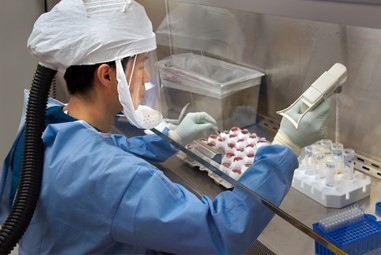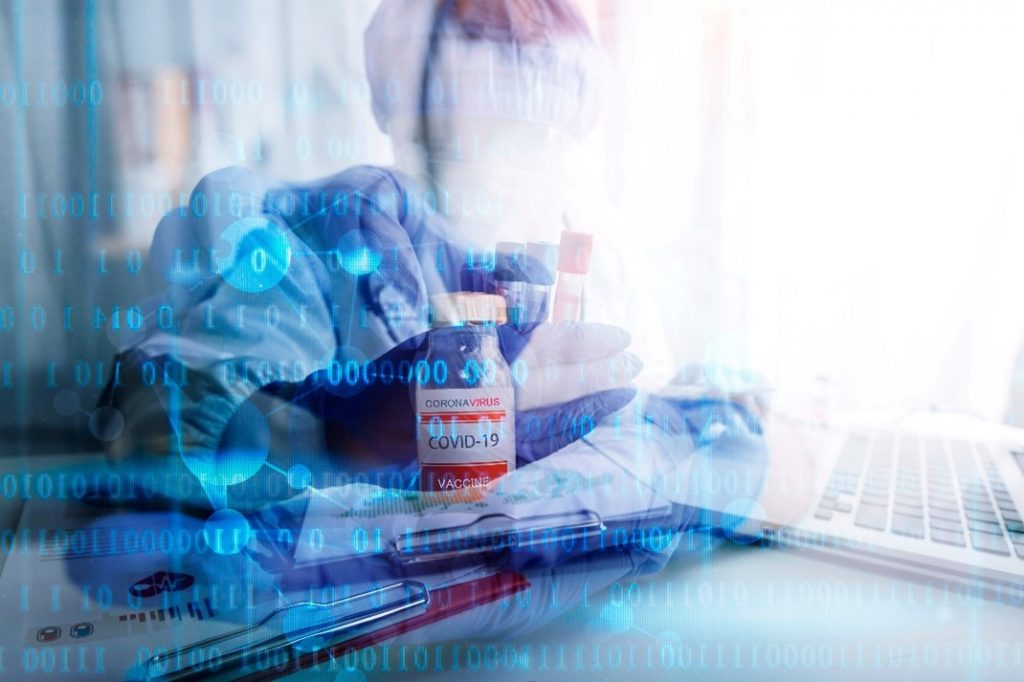Amber Karen Kingston is a Clinical Trial Management and Operations Expert with over 25 years of dedicated focus on patient-centric outcomes. In this article, Amber Kingston of Florida delves into how the integration of real-world evidence and data is revolutionizing clinical research and amplifying patient outcomes.
Clinical research has undergone a significant transformation with the integration of real-world evidence (RWE) and real-world data (RWD) into its fabric. These invaluable tools offer a wealth of information beyond traditional clinical trials, shedding light on the effectiveness, safety, and modern applicability of medical interventions.
Amber Kingston of Florida reviews utilizing real-world evidence, data, and its profound influence on modern clinical research.
Amber Karen Kingston Explains More on Real-World Data
Real-world data (RWD) refers to information collected from real-life settings and populations outside of controlled clinical trials or laboratory environments. It encompasses a wide range of data sources, including electronic health records, medical claims databases, patient registries, health surveys, wearable devices, and even social media.
Real-world data provides insights into how medical treatments and interventions will perform in everyday clinical practice and how they affect diverse patient populations. This data is crucial for informed evidence-based medical decisions, healthcare policy, and clinical research.
As technology advances there will be increased usage within decision making processes that benefit both patients & care providers. The power behind utilizing such data allows us to obtain a more educated approach when addressing healthcare concerns ultimately resulting in more meaningful outcomes altogether.
Real-World Evidence Clarified
Real-world evidence (RWE) is the knowledge and insights derived from the analysis of real-world data (RWD). It encompasses the practical, clinical, and patient experience data collected in true-to-life settings outside the controlled environment of clinical trials.
Amber Kingston explains that RWE offers a broader perspective on the effectiveness, safety, and value of medical interventions including drugs, devices, and therapies, when applied to diverse patient populations.
It is increasingly used to inform patients of their healthcare options, regulatory assessments, and clinical research, supplementing the more traditional evidence generated through randomized controlled trials.
However, there are certain risks associated with RWE involving questions about reliability and accuracy of acquired data. If used appropriately, it can offer significant benefits when making healthcare decisions.
Data gathered through electronic medical records and personal health application devices will help better our understanding towards how medications work in practical life scenarios.
How RWD Supports Clinical Trials and Medical Research
Amber Karen Kingston notes that real-world data can be of great help in various aspects for clinical trials and medical research -- from helping to inform study designs, recognize distinct patient populations or enhance traditional clinical trial data with real world results.
This evidence has the potential to personalize patients’ care plans as well as provide essential information on how secure a drug is over time, compared to what one could find out through classic studies alone.
On top of that, RWD may streamline studying methods by assisting specialists throughout the whole drug development process, thus improving healthcare quality altogether.
The Growing Role of RWE in Clinical Research
Amber Karen Kingston says that access to clinical information, including usage details, benefits, and risks of health products via real-world evidence, empowers more accurate decision-making throughout all stages of care delivery. This approach addresses inherent shortcomings in conventional trials, ultimately resulting in improved patient outcomes.
Amber Kingston reports that added attention has been brought to this trend by the
21st Century Cures Act which promotes cooperation amongst public healthcare authorities as well as data collection from consumers themselves for drug development initiatives across the US.
As RWE increases, it will continue exerting an immense influence on scientific study, plus regulatory action resulting in ultimately greater enhancements in general welfare matters pertaining specifically to patients’ wellbeing.
 • The Shift from Traditional Clinical Trials
• The Shift from Traditional Clinical Trials
As the transition from traditional clinical trials to RWE-based research is made, there are numerous prospective advantages which may be gained. These encompass timely and substantially more comprehensive data, enabling outcomes to be generalized in a far more effective manner than previously achievable.
By including people of varying backgrounds within an expanded patient population when utilizing RWE for studies, treatments can then be tested in real-world settings with effects accurately measured, thereby leading to improved care delivery overall.
Whilst making this switch presents various potential rewards, it is in turn equipped with certain hurdles, especially those related to preserving reliability & quality standards pertaining closely to privacy as well as ethical considerations.
Considering these hurdles, redirecting focus from traditional trials to leveraging RWE presents a tremendous potential for yielding more impactful and relevant findings in medical research. This progress bears the possibility to ultimately elevate the quality of life for patients and revolutionize the approaches of healthcare professionals.
• Advantages of Using Real-World Evidence
Amber Kingston says that the advantages of using RWE in clinical research are countless, leading to greater efficiency during trial design, more diverse patients within the study and enhanced ability to assess the long-term safety/effectiveness of treatments.
Sources of Real-World Data and Their Applications
Real-world data from multiple sources is growing in importance for clinical research, decision making and personalized medicine.
Electronic health records (EHRs) contain comprehensive patient information such as demographics, diagnoses, treatments and outcomes providing essential evidence synthesis and continual monitoring of health results. Replacing the outdated paper-based format, EHRs have become commonplace in many healthcare settings due to their ability to facilitate analysis for evidence generation and close tracking of outcomes.
• Registries and Claims Databases
Amber Karen Kingston notes that registries and claims databases provide an organized structure for collecting valuable data on patients with certain characteristics, including billing and healthcare information often added by pharmacies or health insurers.
Amber Kingston says that these repositories are invaluable in evaluating patient outcomes to gain knowledge of the true effect a medical treatment can have.
Notable examples include the
European Cystic Fibrosis Society (ECFS) registry which stores demographic details about those suffering from cystic fibrosis, as well as UK-based
Systemic Anti-Cancer Therapy (SACT), providing research materials through cross sectional or longitudinal retrospective methods as well.
Real-world evidence generated from these registries is essential not only when conducting post market surveillance, but also during trial design development.
• Patient-Generated Data
Patient-generated data can encompass health history, treatment history and biometric data created by patients or their families. It is a valuable resource which contributes to clinical research as well as patient care decisions.
Amber Karen Kingston says that examples of this type of information include survey responses, social media content and anything collected from mobile devices or healthcare platforms for patient use.
There are special networks designed exclusively to amass datasets related to specific diseases with the aim being comparison analysis regarding effectiveness and outcomes in a more person-centered approach than traditional methods have typically allowed.
Amber Kingston notes, however, it's crucial to acknowledge that these pools do come with potential risks. These include concerns about reliability, privacy, and the intricacies of data handling that must be carefully navigated before integrating them into real-world initiatives. By addressing these challenges head-on, we pave the way for more robust and impactful healthcare insights.
Future Directions and Technological Advancements
RWE/RWD is gaining recognition for its potential to drive clinical research, decision making and patient care due to the technological advances in artificial intelligence and machine learning.
 Harnessing Artificial Intelligence and Machine Learning
Harnessing Artificial Intelligence and Machine Learning
Amber Karen Kingston says that AI and ML have the potential to make RWE even more valuable by identifying correlations within large data sets taken from real-world situations.
With these methods, outcomes can be anticipated as well as insights gained from unstructured information sources. Combining such datasets generates deeper understanding of health matters related to patients’ treatment results.
Amber Karen Kingston of Florida says that to ensure efficient use of this advanced tech for improving RWE processes, various quality aspects must also be secured like those concerning privacy or ethical concerns associated with its application. Working through issues surrounding data reliability will allow Artificial Intelligence and Machine Learning technologies to reach their full scope of potential when it comes to developing uses for true-to-life evidence in healthcare domains moving forward.
Real-World Evidence Utilized in Post COVID-19 Pandemic
Real-world evidence has also been a major factor in helping to develop and authorize health products such as vaccines and treatments for COVID-19. By providing crucial data for making decisions on medical care, improving public health initiatives, and analyzing vaccine efficacy, it has become clear how indispensable RWE is even in times of crisis.
As healthcare changes, especially post-pandemic, so will its appreciation for enhancing innovation with regards to better patient outcomes.
Summary
Real-world evidence is increasingly being utilized to enhance clinical research and healthcare decision making. This form of data collection provides us with a comprehensive view into the safety, efficacy, and application of medical products in routine care scenarios.
Amber Karen Kingston of Florida says that through harnessing advanced technologies such as AI, ML and data collection, these technologies have the capability to completely revolutionize our approach towards personalized medicine, leading to improved patient outcomes and more informed decisions made by physicians and caregivers alike.
In closing, the integration of real-world evidence into clinical research marks a transformative era, noting unprecedented insights, agility, and cost-effectiveness. As technology advances, real-world data and evidence will continue to revolutionize the healthcare industry, in turn, delivering more effective, safer treatments to patients.
 • The Shift from Traditional Clinical Trials
• The Shift from Traditional Clinical Trials Harnessing Artificial Intelligence and Machine Learning
Harnessing Artificial Intelligence and Machine Learning